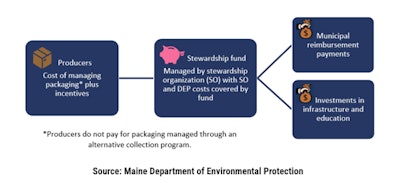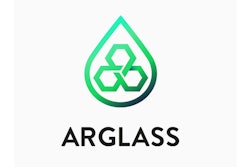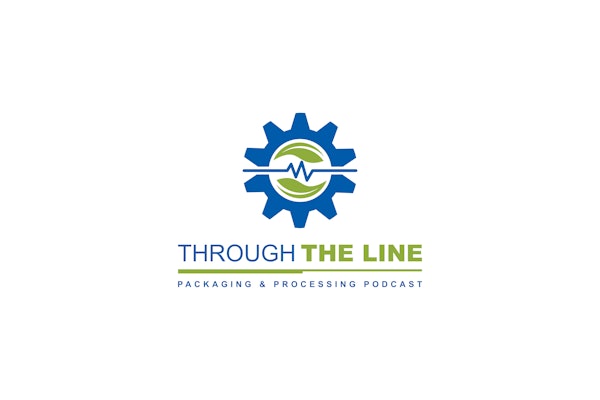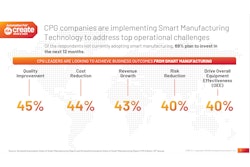Less than three years after adopting the first-in-the-nation Extended Producer Responsibility (EPR) for packaging law, Maine’s Department of Environmental Protection (DEP) has drafted regulations to define the parameters of the landmark policy, per the Natural Resources Council of Maine (NRCM).
The Board of Environmental Protection (BEP) is expected to finish reviewing and voting on the draft policy in early 2024. The goal is to reduce taxpayer costs and improve recycling by encouraging corporations and manufacturers to create less wasteful packaging and help defray the cost of recycling.
Like most states in the U.S., Maine taxpayers and municipalities have shouldered the responsibility for packaging waste, with the NRCM estimating that 30-40% of waste is packaging.
Despite decades of effort, Maine has yet to achieve its recycling target of 50%. Countries with established EPR frameworks boast impressive recovery rates, many achieving 60% and 70% recycling, highlighting the program’s potential to reshape Maine’s recycling landscape.
Many Maine communities have suspended or cut back their recycling programs because of limited options and rising costs for managing these materials, sending them to landfills instead. With landfills throughout the state nearing capacity, this temporary solution creates another expensive problem: expanding existing landfills.
EPR for Packaging contains ambitious yet attainable goals to achieve statewide community participation with investments that will make recycling more accessible and affordable for everyone, per the NRCM.
The DEP’s proposal creates a Stewardship Organization (SO) to provide a thorough assessment of Maine’s recycling landscape and identify areas where communities could use more support to get their programs operating efficiently and effectively.
Once implemented, the law offers robust financial incentives for producers to streamline packaging, minimize waste and toxicity, and enhance recyclability. Even communities that need more time to successfully implement a full recycling program in their town will experience improvements in the design and collection of packaging materials.
Passed with bipartisan support, the EPR for Packaging Law was championed by 79% of Maine voters who voted for the bill.
With many states believed to be watching Maine’s progress and implementation, NRCM expects to lead a wave of states embracing EPR for packaging legislation.



























